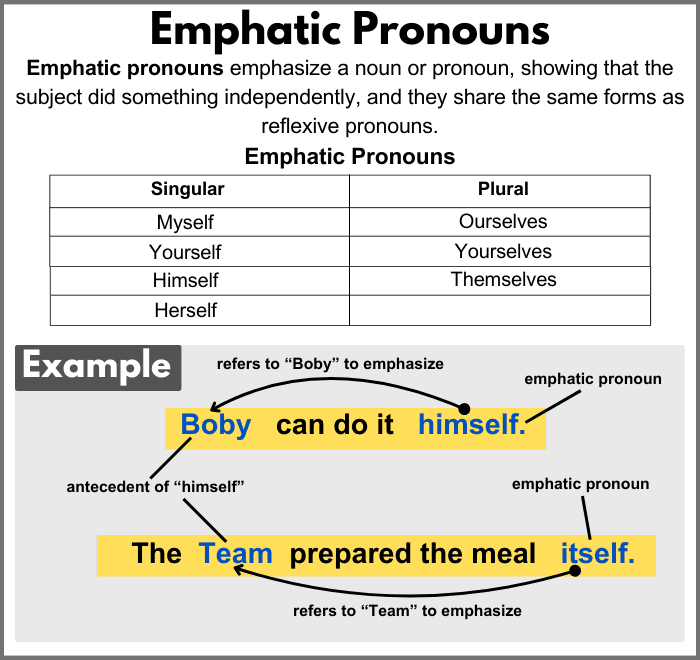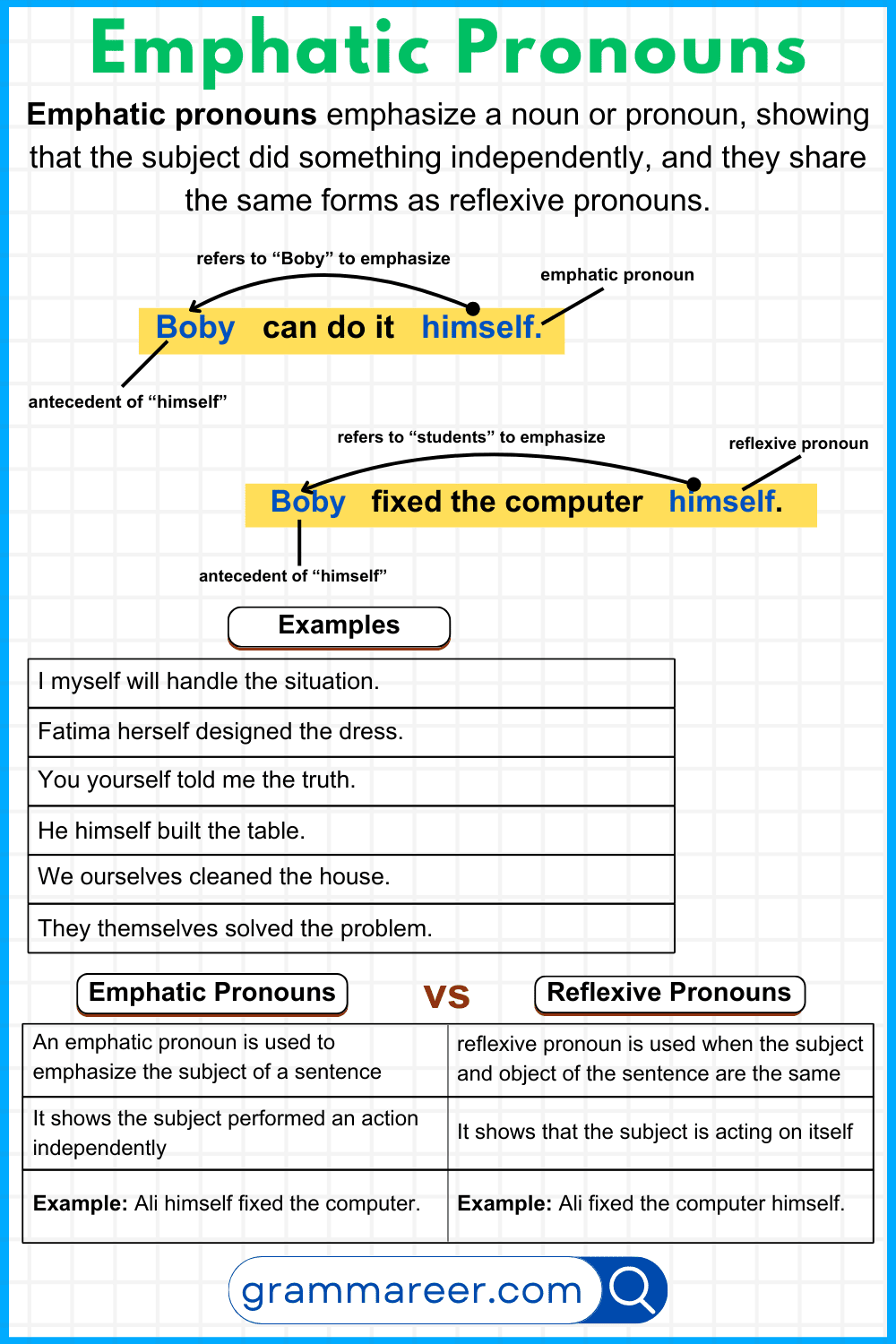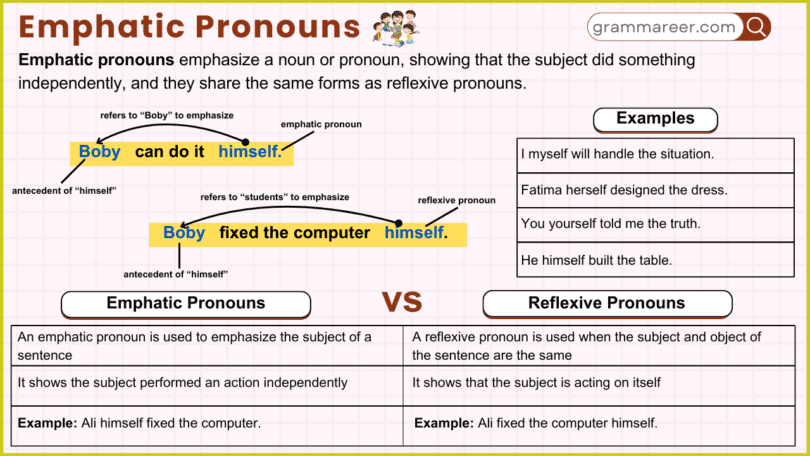Emphatic pronouns are an essential part of English grammar, used to add emphasis to the subject of a sentence. These pronouns help highlight that the subject completed an action alone or with noticeable effort. Understanding emphatic pronouns helps learners add clarity and emphasis, strengthening their communication skills. In this article, we’ll explore emphatic pronouns, how they differ from reflexive pronouns, and provide examples to help you master their usage in sentences.
Emphatic pronouns emphasize a noun or pronoun, showing that the subject did something independently, and they share the same forms as reflexive pronouns.
Example:
I myself made the decision.
Table of Contents
Difference between an Emphatic Pronoun and a Reflexive Pronoun
Here are the key differences between emphatic pronouns and reflexive pronouns:
Emphatic Pronoun: An emphatic pronoun highlights the subject of the sentence, showing the subject’s involvement. It doesn’t mean the subject performed the action on themselves but instead emphasizes their role in the action.
- Zainab herself solved the issue.
This sentence stresses that Zainab took the initiative to solve the problem.
Reflexive Pronoun: Reflexive pronouns, on the other hand, indicate that the subject and the object are the same, meaning the subject is acting on themselves.
- Zainab solved the issue herself.
Here, herself acts as a reflexive pronoun, showing that Zainab solved the issue for her benefit.
✅ She herself handled the situation.
❎ She handled herself the situation.
How to Form Emphatic Pronouns
Emphatic pronouns use the same forms as reflexive pronouns but are used in sentence construction differently. Here’s a quick reference:
| Subject | Emphatic/Reflexive Pronoun |
|---|---|
| I | myself |
| You | yourself |
| He | himself |
| She | herself |
| We | ourselves |
| They | themselves |
When creating sentences with emphatic pronouns, make sure you’re using them to emphasize the subject, not as an object.

Why Emphatic Pronouns Are Important
Here are some key reasons why emphatic pronouns are important.
Add Emphasis
Emphatic pronouns can give extra weight to a subject, emphasizing their actions or characteristics. This makes the statement more impactful.
- She herself designed the entire website.
Enhance Expression
Using emphatic pronouns enhances the expression of a sentence, making it more vivid and adding depth to the meaning.
- They themselves were shocked by the results.
Show Pride
Emphatic pronouns can convey pride in someone’s actions or accomplishments, often used to highlight achievements in a positive light.
- We ourselves built this community from the ground up.
Placement in Sentences
Emphatic pronouns generally follow the subject they emphasize, providing clear emphasis right after the noun or pronoun.
✅ Ali himself completed the project.
❎ Ali completed himself the project.
They can also appear at the end of sentences but maintain their role as emphatic pronouns:
- They completed the task themselves.
FAQs
An emphatic pronoun emphasizes the subject of a sentence, highlighting that the subject performed an action independently or with particular effort.
Emphatic pronouns add emphasis to the subject, while reflexive pronouns indicate the subject is performing the action on themselves.
Yes, emphatic pronouns are suitable for both formal and informal writing, as they add clarity and highlight the subject’s role in an action.
Emphatic pronouns are usually placed directly after the subject or at the end of the sentence.
Conclusion
Mastering emphatic pronouns helps English learners communicate with greater clarity and expression. By knowing when and how to use emphatic pronouns, learners can make their sentences stronger and more impactful, adding emphasis as needed.
You May Also Like





